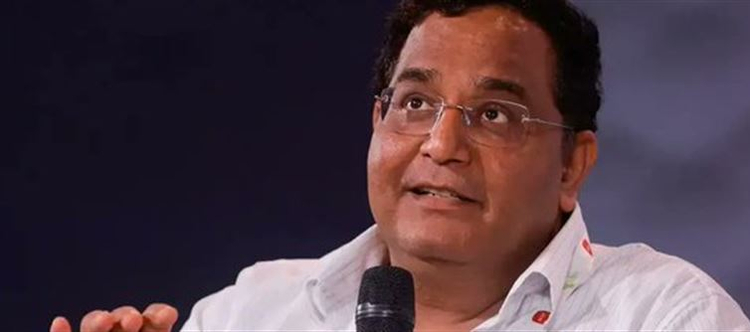
In a surprise move that has left market watchers scratching their heads, Vijay Shekhar Sharma, the CEO of Paytm, has voluntarily forfeited 2.1 crore shares of the company. The shares, worth an estimated ₹1,800 crores, were part of an Employee Stock Option Plan (ESOP), a move that experts believe could have far-reaching implications for both the company's future and its investors.
The Big Question: Why Forfeit 2.1 Crore Shares?
To the casual observer, the decision might seem perplexing. After all, forfeiting such a massive stake could be seen as an act of self-sacrifice, especially given the substantial value of those shares. However, when you dig a little deeper, the move starts to make sense in the context of corporate governance and the company's ongoing efforts to navigate its way through turbulent waters.
For context, Paytm, which was once hailed as India’s fintech unicorn, has faced its fair share of challenges since going public. The stock has been under significant pressure, seeing its value plummet from its IPO price, sparking concerns among investors. Amidst this backdrop, Vijay Shekhar Sharma’s decision to forfeit such a large chunk of his holdings might be interpreted as a symbolic act to demonstrate his commitment to the company and its future prospects. It's almost as if he is saying, “I believe in Paytm’s future, and I’m willing to put my personal wealth on the line to help steer this ship forward.”
A Message to Investors and Employees
By relinquishing a part of his stake, Sharma is also sending a signal to investors that he is prioritizing the health and governance of the company. Market experts have pointed out that this move could help reassure nervous shareholders, showing them that the company’s leadership is fully committed to restoring value and improving performance. It could be seen as a gesture to rebuild trust, especially considering the company's shares have struggled to hold their ground post-IPO.
Furthermore, Paytm is also facing legal challenges, which only add to the uncertainty surrounding its future. In light of these issues, Sharma’s decision could be interpreted as a proactive step to regain control over the company’s narrative, focusing on governance improvements and aligning leadership with long-term company goals.
But the move is not just about optics. Sharma's gesture also ties into the company’s broader strategy to protect employee interests. By relinquishing these shares, the CEO ensures that the Employee Stock Option Plans (ESOPs) will remain more evenly distributed among employees, potentially boosting morale and encouraging them to stay invested in the company’s future. It’s a clear attempt to align leadership with the interests of the employees who are the backbone of the company’s operations.
The Wider Picture: Kenneth Andrade’s Advice to Look at Exporters
Meanwhile, in the same breath, Kenneth Andrade, a seasoned investor, has pointed out that investors should look beyond fintechs like paytm and focus on exporters for potential growth. With global demand fluctuating, many indian exporters are poised to benefit from the increasing interest in indian goods and services in international markets. As the Indian economy continues to recover, exporters could be in a sweet spot, offering steady growth and strong returns.
What Does This Mean for the Common Man?
For the everyday investor or the common man, the unfolding events at paytm offer a valuable lesson in corporate governance and the long-term nature of investing. Vijay Shekhar Sharma's decision is not just a strategic move for paytm, but also a reminder that in the world of business, actions often speak louder than words. The fact that the CEO has forfeited such a large chunk of his shares speaks volumes about his commitment to the company and its employees, a stark contrast to other business leaders who might make decisions solely with short-term profits in mind.
For the common man, especially those with investments in paytm or those considering entering the market, this move could indicate that the company is attempting to turn things around. However, prudence remains essential. Paytm’s stock performance has been volatile, and while this act of goodwill from the CEO may calm nerves in the short term, the company’s future success will ultimately depend on its ability to execute its strategy, navigate the competitive fintech landscape, and restore investor confidence.
Conclusion: A Turning Point or a Temporary Boost?
In the end, Vijay Shekhar Sharma’s decision is likely a strategic maneuver designed to bolster investor confidence and give paytm some much-needed breathing room in the marketplace. Whether this will lead to a sustained turnaround for the company remains to be seen. For now, though, it’s clear that corporate governance, employee interests, and long-term strategic decisions are at the forefront of Paytm’s playbook.
For the common man, the takeaway is simple: sometimes, leadership sacrifices can be the catalyst for rebuilding trust and driving change. But it’s also important to keep a watchful eye on the bigger picture, as the market’s fluctuating nature means the road to recovery may still be bumpy.




 click and follow Indiaherald WhatsApp channel
click and follow Indiaherald WhatsApp channel